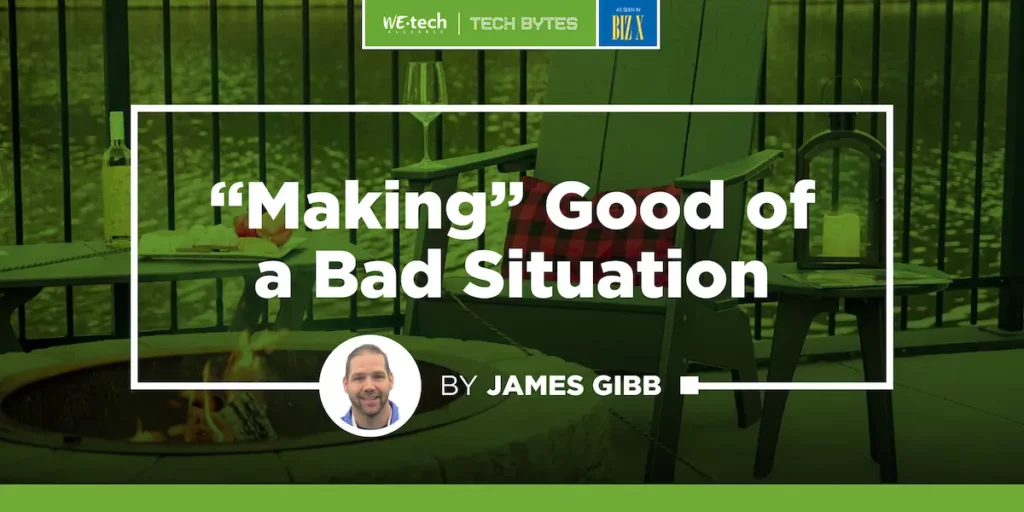Home » “Making” Good of a Bad Situation
“Making” Good of a Bad Situation


Since the advent of plastic polymers in the 1800’s and through the industrial revolution the benefits and uses for this man-made substance have been prolific. Plastics have become part of our everyday life and the luxuries and advancements in technology that we are able to enjoy. From the bottle of water you hold in your hand, to the cell phone you socialize with, to the syringes and bio-medical devices that aide in saving lives, plastics are all around us.
Although we have been able to realize so many benefits of this substance, many of us are aware of the dangers and long-term impacts to our earth and eco-system that plastics present. Present day scientists still do not fully understand the length of time or how fully that plastics will degrade and how long they will remain once they are in a landfill. According to Stats Canada, Canadians discard approximately 4 million tonnes of plastic per year, of which only 8% is recycled. That’s a whopping 3.6 million tonnes or 108kg per person going to landfills and polluting our waterways.
So what can we do about it?
Recycled content manufacturing is one way of helping to combat this necessary evil. We understand and live with plastic everyday, but how can we find the balance of benefit and minimal impact on our environment? By investing in technologies and developing more uses for recycled content plastics and continuing to build a growing use and need for recycled material; if there is a demand there will need to be a supply.
What is recycled content manufacturing? As simply put, the waste we collect through our waste management systems are recovered either through our “blue box” programs, or cleaning efforts. The recovered waste is then sorted by type of plastic, as similar grades are needed for the most effective re-use. The plastics are then re-processed by cleaning, shredding and re-pelletizing into a new usable life form for manufacturing products, such as furniture, car parts and consumer packaging.
As technology evolves and our abilities to recover, clean and re-use more materials, economically and sustainably so too will our availability of products that have been made from recycled content manufacturing.
So as consumers we all have choices about how or where our purchases are made, we know that the road to a plastic free planet is long, and may never be realized, but we can all do a small part to make a bigger impact. Start by researching companies and manufacturers that use and invest in sustainable materials and advanced technologies within their products, and work out how significant of an environmental impact our luxuries create. We can all buy and enjoy the luxuries and benefits of plastics, by buying responsibly with products that have been made from recyclables.
And lastly, do your part to help put the plastics into the necessary recovery channels so we can increase our uses of recycled content. Just think, that milk jug, or soap bottle you are tossing out could be your next piece of patio furniture.
This Tech Bytes powered by WEtechAlliance article originally appeared in the July 2022 issue of Biz X Magazine.

James Gibb is the owner and founder of Affinity Custom Designs and has been working in plastics manufacturing for 18 years. Affinity Outdoor Living is a manufacturing and fabricating company that prides itself on the specialized use of recycled plastics within all of its products. For more information please visit: www.affinityinc.ca
The post “Making” Good of a Bad Situation appeared first on WEtechAlliance.
WEtechAlliance
https://www.WEtech-alliance.com/
WEtech Alliance has served as a catalyst for technology and innovation in the Windsor-Essex and Chatham-Kent, Ontario regions since 2011. We’re a non-profit organization that provides entrepreneurs and companies with business services, training, I.P. and commercialization support, mentorship and strategic connections to help bring new ideas to market, scale to the next level and build a dynamic culture and a community of innovation.


